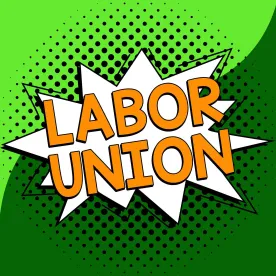More than one year ago, the National Labor Relations Board’s general counsel Jennifer Abruzzo issued a memo opining that employer “captive audience” meetings – where an employer may require employees to attend a meeting in which it shares information on union issues – are unlawful. That opinion did not change the law, but rather represented how Abruzzo, as the top prosecutor of federal labor law, would seek to enforce it before the NLRB.
Since that time, employers faced with union organizing campaigns have faced a difficult decision: continue to hold captive audience meetings, which are currently lawful and have been for decades but risk a complaint from Abruzzo’s regional offices, or avoid such meetings and risk employees not hearing the employer’s position on union organizing.
Clarity on the lawfulness of captive audience meetings may soon be coming. Abruzzo recently advised in a Report on the Midwinter Meeting of the Practice and Procedure Under the National Labor Relations Act Committee of the American Bar Association Labor and Employment Law Section that there are more than two dozen cases pending before the NLRB in which she has taken the position that captive audience meetings are unlawful.
The leading case, Cemex, 28-CA-230115, is fully briefed before the NLRB and is awaiting a decision. The general counsel explained in the report that she “has taken the position that the Board should overrule Babcock & Wilcox and hold that an employer violates Section 8(a)(1) when it implicitly or explicitly threatens employees with reprisal if they decline to listen to speech concerning employee exercise of Section 7 rights. That case is pending before the Board. Subsequently, the General Counsel has taken this position in more than two dozen cases pending at various post-complaint stages, i.e., awaiting a hearing before an ALJ, currently being litigated before an ALJ, and before the Board.”
For better or worse, the NLRB is expected to rule this year, and in doing so it will either affirm decades-old precedent finding that such meetings are lawful or will make these mandatory meetings unlawful and invite a likely challenge in the federal courts of appeal.
Employers should stay tuned as this important case will be decided during a time of increased union organizing, because it will directly affect the ability to mount a successful defense to a union organizing drive.




 />i
/>i

